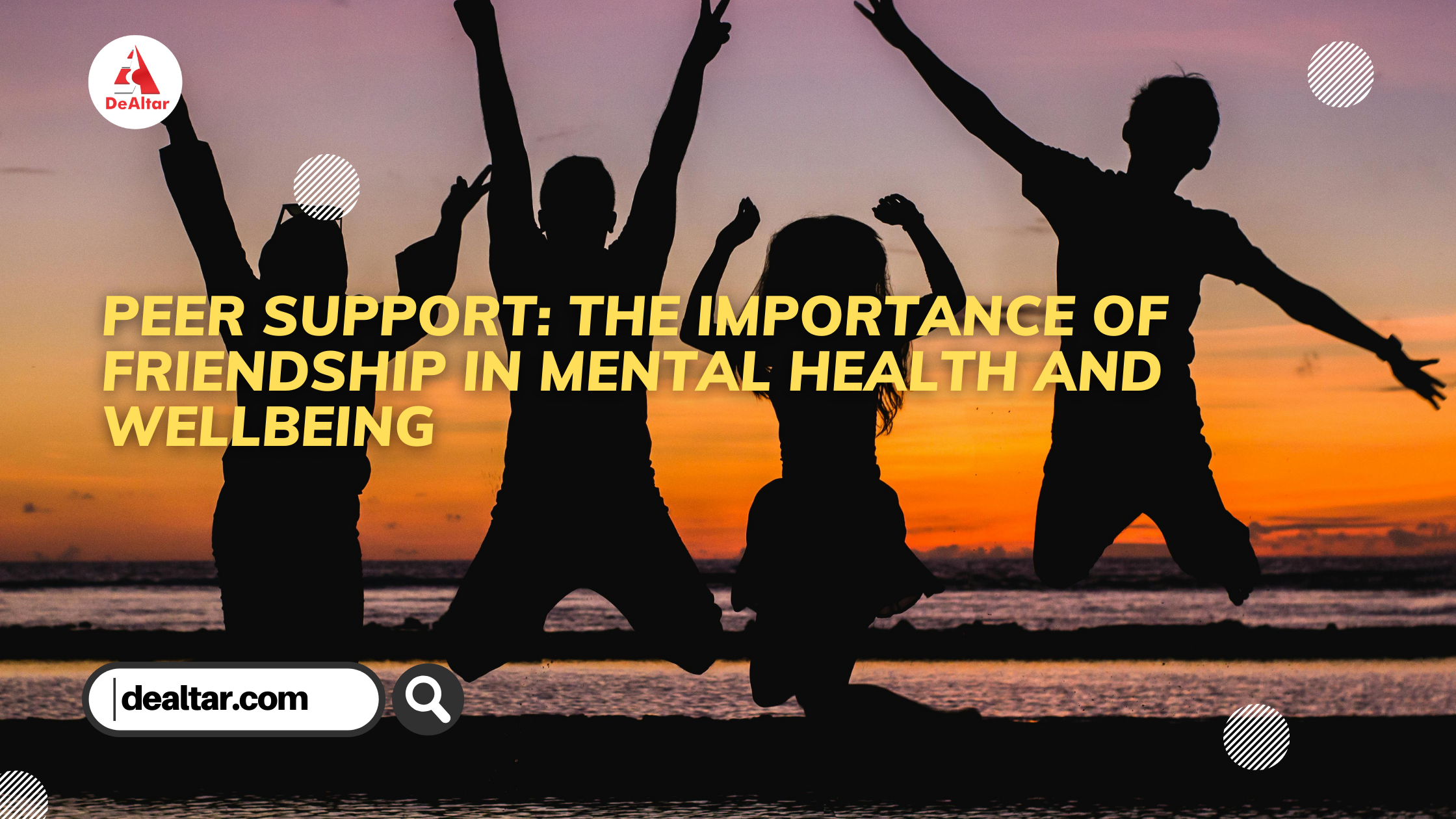PEER SUPPORT: THE IMPORTANCE OF FRIENDSHIP IN MENTAL HEALTH AND WELLBEING
Having a network of friends or being part of a community, whether locally or internationally, is crucial for our mental health and overall well-being. These connections significantly shape our personality, influencing us either positively or negatively. As human beings, we are inherently designed to grow in various dimensions—physically, morally, and spiritually. This growth process is inevitably accompanied by challenges that test our resilience and facilitate our progress to the next stage of life. These challenges are diverse and unique to each individual, affecting even the youngest among us.
The saying, “Show me your friends, and I’ll tell you who you are,” may seem antiquated, but it holds a profound truth. If we look at the animal kingdom, we notice that animals move in groups of the same species, providing them with protection, strength, and social structure. Similarly, humans cannot navigate the complexities of life without the companionship and support of friends. However, the quality and health of these friendships are paramount. Toxic relationships can ensnare us without our realization, making it essential to regularly evaluate the company we keep.
Questions about our friendships should be addressed with sincerity, as they profoundly affect our mental state and behavior. If self-examination reveals that a friendship is not beneficial, it is wise to let it go. The adage “Bad company corrupts good manners” is particularly relevant here. No matter how virtuous you are, being surrounded by unhealthy peer groups can deteriorate your character. Psalms 1:1-3 explicitly warns against associating with the wrong company, emphasizing the importance of surrounding oneself with positive influences.
To maintain mental health and a sound mind
One must carefully filter the information and influences they receive. It’s beneficial to pose critical questions within your friend groups or peer circles to gauge their value. When you need emotional support, can you rely on these friends? Do they care about your well-being during your downtime? Do they uplift you when they advance? A supportive friendship should be mutually beneficial, where each person contributes positively to the other’s life.
While everyone has differences and weaknesses, a good support system helps you navigate tough times. Many people have succumbed to depression because they were part of the wrong “ship” or friendship group. It’s vital to abandon friendships that are toxic or unproductive. A supportive friend group provides a sense of belonging, reduces stress, and helps you cope with traumatic events.
Friendships offer more than just social interaction; they are fundamental to our emotional support systems. A healthy friendship can help you overcome loneliness, increase your sense of purpose, and boost your happiness. When you are part of a supportive community, you are more likely to engage in healthy behaviors and make positive life choices.
In the pursuit of healthy friendships, intentionality is crucial. You can gauge the health of your friendships by asking yourself if your friends are there for you in times of need, if they contribute positively to your life, and if they encourage your personal growth. Healthy friendships are characterized by mutual respect, trust, and a sense of shared values.
In conclusion,
Peer support and friendships play a vital role in mental health and well-being. By fostering healthy and meaningful relationships, we can create a supportive environment that promotes personal growth, emotional stability, and a higher quality of life. Let us strive to find and cultivate friendships that enhance our lives and contribute positively to our mental health. Together, we can make the world a saner and better place to live.

This Post Has 0 Comments